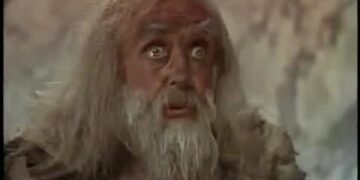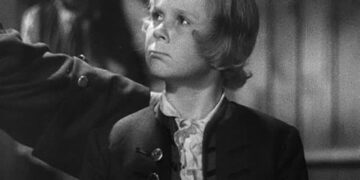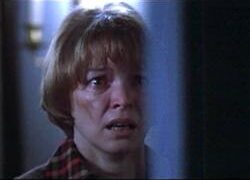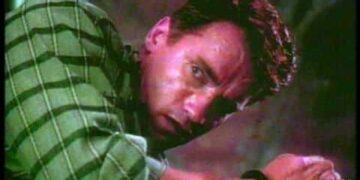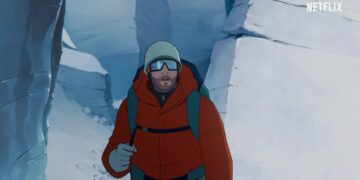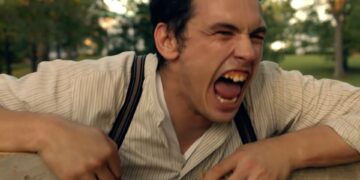The Imitation Game is a fascinating piece of media that has captured the hearts and minds of audiences around the world.
Centered around the life and work of mathematician and computer scientist Alan Turing, the story delves into the world of code-breaking, war, and personal struggle.
This comprehensive guide will help you understand the intricacies of the book, movie, and the real-life events that inspired them.
So, let’s dive in and decode The Imitation Game.
Book summary: Alan Turing: The Enigma by Andrew Hodges
Alan Turing: The Enigma is a biography written by Andrew Hodges that tells the story of Alan Turing’s life and accomplishments.
The book covers Turing’s early life, his education at the University of Cambridge and Princeton University, and his work on breaking the German Enigma code during World War II.
Hodges also delves into Turing’s personal life, detailing his struggles with his sexuality, his arrest for homosexuality, and his subsequent chemical castration.
Hodges’ biography also explores Turing’s work in mathematics, computer science, and artificial intelligence, which has had a lasting impact on these fields.
The book was first published in 1983 and has since been updated and republished in multiple editions.
Movie summary: The Imitation Game (2014)
The Imitation Game is a 2014 historical drama film directed by Morten Tyldum, based on Andrew Hodges’ biography Alan Turing: The Enigma.
The movie stars Benedict Cumberbatch as Alan Turing and Keira Knightley as his close friend and fellow code-breaker, Joan Clarke.
The film focuses primarily on Turing’s work during World War II at Bletchley Park, where he and his team built the machine that would break the German Enigma code.
The Imitation Game also delves into Turing’s personal life, exploring his relationships, his struggles with his sexuality, and the tragic consequences of his arrest for homosexuality.
The movie was met with critical acclaim, earning numerous awards and nominations, including eight Academy Award nominations.
Comparing book and movie: Similarities and differences
While both the book and movie share the same subject matter, there are some notable differences between the two.
The book, being a biography, covers Turing’s life in much greater detail, including his early life, education, and work in various fields of mathematics and computer science.
The movie, on the other hand, mainly focuses on Turing’s work at Bletchley Park and his relationships with his fellow code-breakers.
One notable difference between the book and movie is the portrayal of Turing’s character.
In the book, Turing is described as a complex and multifaceted individual, while in the movie, his character is somewhat simplified and dramatized for the sake of storytelling.
Additionally, some events and relationships are altered or omitted in the movie, such as Turing’s engagement to Joan Clarke, which was brief and not as romantically charged as depicted in the film.
Despite these differences, both the book and movie offer valuable insight into the life and work of Alan Turing, making them complementary pieces of media that together paint a vivid picture of this remarkable individual.
Understanding the historical context: When and where The Imitation Game takes place
The events of The Imitation Game primarily take place during World War II, specifically between 1939 and 1945.
The main setting is Bletchley Park, a top-secret British code-breaking facility where Turing and his team worked tirelessly to decipher encrypted German messages.
These messages were encrypted using a device called the Enigma machine, which was considered unbreakable at the time.
The Imitation Game also touches on Turing’s early life and education, which took place in England during the 1920s and 1930s, as well as the aftermath of the war and Turing’s arrest for homosexuality in the 1950s.
Key characters: A who’s who guide
- Alan Turing (Benedict Cumberbatch): The central character in The Imitation Game, Turing was a brilliant mathematician, computer scientist, and code-breaker who played a crucial role in breaking the German Enigma code during World War II.
- Joan Clarke (Keira Knightley): A close friend and fellow code-breaker at Bletchley Park, Clarke worked alongside Turing and was briefly engaged to him. She was one of the few women working in the top-secret facility.
- Hugh Alexander (Matthew Goode): A British cryptanalyst and chess champion who was part of Turing’s team at Bletchley Park. He initially clashed with Turing but eventually became one of his closest colleagues.
- John Cairncross (Allen Leech): A British intelligence officer and Soviet spy who worked at Bletchley Park. In the movie, he is portrayed as a member of Turing’s team, but in reality, they did not work together directly.
- Peter Hilton (Matthew Beard): A young British mathematician and code-breaker who worked under Turing at Bletchley Park.
- Commander Alastair Denniston (Charles Dance): The head of the Government Code and Cypher School at Bletchley Park, who initially opposed Turing’s methods but later came to appreciate hiscontributions.
Notable quotes from The Imitation Game
The Imitation Game is filled with memorable quotes that capture the essence of Turing’s character and the themes of the story.
Here are some of the most notable quotes:
- “Sometimes it is the people no one imagines anything of who do the things that no one can imagine.” – Alan Turing
- “Do you know why people like violence? It is because it feels good. Humans find violence deeply satisfying. But remove the satisfaction, and the act becomes… hollow.” – Alan Turing
- “The machine is not the enemy. The enemy is the enemy.” – Joan Clarke
- “Sometimes it’s the very people who no one imagines anything of who do the things no one can imagine.” – Christopher Morcom
- “I’m afraid these conversations always end this way. With me drinking tea and staring into space, and you with your back to me, planning your next adventure. Sickeningly predictable, really.” – Joan Clarke
The Imitation Game soundtrack by Alexandre Desplat
The Imitation Game soundtrack was composed by Alexandre Desplat, a French film composer known for his work on films such as The Grand Budapest Hotel and Harry Potter and the Deathly Hallows.
The score features a mix of orchestral and electronic elements, capturing the tension and drama of the story.
One standout track is “The Imitation Game,” which features a haunting melody played on solo piano, accompanied by swelling strings and percussion.
The track perfectly captures the emotional weight of Turing’s struggle to break the Enigma code.
Curiosities and trivia about The Imitation Game
Did you know that:
- Benedict Cumberbatch was not the first choice to play Alan Turing in the movie. Leonardo DiCaprio, who was originally attached to the project, dropped out due to scheduling conflicts.
- The scenes set in Bletchley Park were filmed at the actual location, which is now a museum open to the public.
- The Imitation Game was not the first movie to be made about Alan Turing. The 1996 film Breaking the Code, starring Derek Jacobi, also depicted Turing’s life and work.
- The title of the movie comes from a paper Turing wrote in 1950 called “Computing Machinery and Intelligence,” in which he proposed the “imitation game” as a test of a machine’s ability to exhibit intelligent behavior.
Tips for cosplay: Dressing like your favorite characters
If you’re a fan of The Imitation Game, you might be interested in cosplaying as one of the characters.
Here are some tips to help you get started:
- Alan Turing: For Turing’s outfit, you’ll need a brown tweed suit, white shirt, and striped tie. To complete the look, add a pocket square and a pair of black oxford shoes.
- Joan Clarke: Clarke’s wardrobe is characterized by a mix of feminine and masculine styles. To recreate her look, try wearing a tweed jacket with a white blouse, a long skirt, and a pair of brogues.
- Hugh Alexander: Alexander’s style is classic and understated. To dress like him, opt for a navy suit, white shirt, and navy tie. Finish the look with a pair of brown leather shoes.
A closer look at Andrew Hodges: Biography and other works
Andrew Hodges is a mathematician and author best known for his biography of Alan Turing, but he has also written several other books on mathematics and science.
Hodges was born in London in 1949 and studied mathematics at the University of Oxford. He later earned a PhD in mathematical logic from the University of London.
In addition to Alan Turing: The Enigma, Hodges has written books on topics such as quantum mechanics and the philosophy of science.
He is currently a professor of mathematics at the University of Oxford.
The Imitation Game ending explained
The ending of The Imitation Game is bittersweet and tragic, as it depicts Turing’s arrest for homosexuality and subsequent chemical castration.
The scene is heartbreaking, as Turing is forced to undergo a cruel and inhumane punishment for something that should not have been a crime in the first place.
However, the ending also highlights Turing’s enduring legacy and the impact of his work on modern computing.
In the final scene, we see the dedication on a plaque commemorating Turing’s life and contributions, reminding us of the importance of his work and the injustice of his persecution.
Future prospects: Remakes, sequels, and spin-offs
As of now, there are no plans for a remake, sequel, or spin-off of The Imitation Game. However, given the enduring popularity of the story and the interest in Turing’s life and work, it’s possible that we may see additional adaptations in the future.
Morten Tyldum’s filmography: Exploring other media by the director
Morten Tyldum, the director of The Imitation Game, has directed several other notable films throughout his career.
These include:
- Headhunters (2011): A Norwegian thriller about an art thief who gets in over his head.
- Passengers (2016): A science fiction romance starring Jennifer Lawrence and Chris Pratt.
- Counterpart (2017-2019): A television series about a man who discovers a parallel world.
Expanding your horizons: Similar media to The Imitation Game and Alan Turing: The Enigma
If you enjoyed The Imitation Game and want to explore similar media, here are some recommendations:
- Hidden Figures (2016): A movie about the African American women who worked at NASA during the Space Race.
- The Theory of Everything (2014): A biopic about physicist Stephen Hawking.
- The Man Who Knew Infinity (2015): A movie about the life of mathematician Srinivasa Ramanujan.
- Code Girls by Liza Mundy: A non-fiction book about the women code-breakers of World War II.
Book club discussion questions for The Imitation Game
If you’re part of a book club and are planning to read Alan Turing: The Enigma or watch The Imitation Game, here are some discussion questions to get the conversation started:
- What did you think of Turing’s character? Did you find him sympathetic? Did you agree with his methods?
- What role did Joan Clarke play in the story, and how did her relationship with Turing impact the plot?
- How did the historical context of World War II impact the events of the story?
- What did you think of the ending? Did it feel satisfying or unsatisfying?
- How did the movie adaptation compare to the book, in your opinion?
Video games inspired by The Imitation Game
While there are no video games directly based on The Imitation Game, there are several games that feature code-breaking as a gameplay mechanic.
These include:
- The Room (2012): A puzzle game in which players must solve a series of intricate puzzles to unlock a mysterious box.
- Hacknet (2015): A game that simulates hacking and code-breaking, using real-world command line interfaces.
- The Witness (2016): A puzzle game in which players must solve a series of environmental puzzles to progress through the game.
Travel guide: Visiting The Imitation Game film locations
If you’re a fan of The Imitation Game, you might be interested in visiting the locations where the movie was filmed.
Here are some of the most notable locations:
- Bletchley Park: The top-secret code-breaking facility where Turing and his team worked during World War II.
- Sherborne School: The location where Turing’s early life and education were depicted in the movie.
- Winchester College: The location where Turing’s friend and mentor Christopher Morcom attended school.
Conclusion
The Imitation Game is a captivating story that offers a glimpse into the life and work of Alan Turing, a brilliant and complex individual who made significant contributions to the fields of mathematics, computer science, and code-breaking.
Whether you choose to read Andrew Hodges’ biography or watch the movie adaptation, there is much to be learned and appreciated from this remarkable story.


